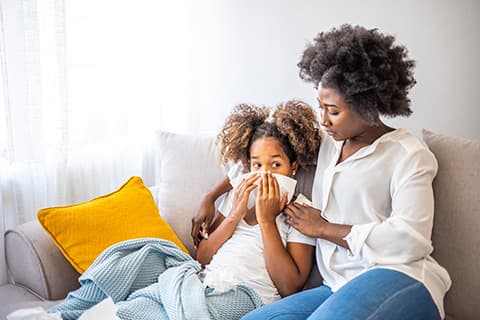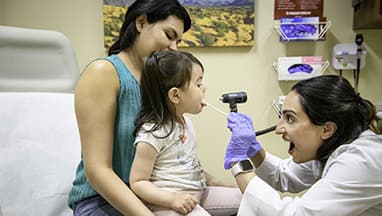Respiratory Illness Season: What You Need to Know
Respiratory illness season happens in fall and winter when viruses like the flu, COVID-19 and respiratory syncytial virus (RSV) spread more easily. Illness from these viruses can range from mild to serious. Young children, older adults and people with chronic health conditions are most at risk for complications.

Common symptoms include:
Body aches
Cough
Feeling very tired
Fever
Headache
Sore throat
Stuffy or runny nose
The best way to protect yourself is to take preventive actions to avoid catching and spreading illness.
Vaccines and Prevention
Getting the right vaccines each year helps lower your chance of getting very sick. Vaccines can:
Lower the risk of hospital visits
Make symptoms milder if you do get sick
Protect you and your family
Other Ways To Prevent Illness
Avoid close contact with people who are sick
Clean and disinfect surfaces you touch often
Cover your coughs and sneezes
Stay home when you don’t feel well
Wash your hands often with soap and water
What To Do if You Get Sick
Most people with flu, COVID-19 or RSV can recover at home. Helpful steps include:
Resting
Drinking plenty of fluids
Staying home until you feel better to avoid spreading illness
Taking over-the-counter medicines for fever, pain or congestion if safe for you
Some medicines, like antivirals, may be prescribed for people at higher risk. Talk with your provider if you are unsure what is right for you.
Presbyterian offers convenient care options to meet your needs.
Frequently Asked Questions
References
Quick Links
New Mexico Department of Health Centers for Disease Control and Prevention Vaccination Resources Vaccine Clinic Events



